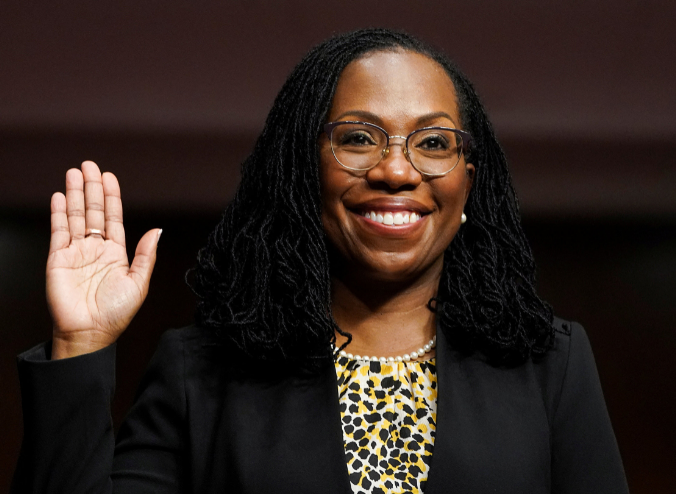
- Details
- By Neely Bardwell
In a letter released on Monday, the National Congress of American Indians (NCAI) and the Native American Rights Fund (NARF) expressed their support for nominee Judge Ketanji Brown Jackson’s confirmation to become an associate justice of the U.S. Supreme Court.
Judge Jackson was nominated by President Joe Biden on Feb. 25, 2022 to become the next Supreme Court associate justice. When confirmed, Judge Jackson, the first Black woman nominated to the U.S. Supreme Court, will take the place of retiring Associate Justice Stephen Beyer.
Part of the letters states:
“While Justice Jackson has limited experience in federal Indian law, she has expressly acknowledged the 'sovereign-to-sovereign relationship' between the United States and Indian tribes and 'special trust relationship between Indian tribes and the federal government.' We hope Judge Jackson continues to build on this understanding, especially with the several cases that are coming before the U.S. Supreme Court next term that will impact Tribal Nations. It is critical that Supreme Court justices understand the political status of Tribal Nations and the unique context, history, and application of federal Indian law to support tribal government sovereignty. We welcome the opportunity to further support this engagement and education.”
NCAI and NARF have made it clear that nominating a federal court judge who both is a tribal citizen, and has an understanding of tribal sovereignty and federal Indian law, which would be the next step in advancing sovereign-to-sovereign relations. Although Judge Jackson is not a tribal citizen, she has expressed her understanding of Native tribes' sovereignty.
“Based on her qualifications, integrity, and respect she has throughout the legal profession, we believe that Judge Jackson is uniquely qualified to serve on the U.S. Supreme Court. Our federal courts and especially the highest court in the United States must be more representative of the governments and people they serve. NCAI and NARF support the nomination of Judge Ketanji Brown Jackson and call for her swift confirmation," the letter further reads.
With the nomination of Judge Jackson, there is hope that advancements for Native people will be made as well.
“We hope that this historic appointment will continue to open doors for qualified Native American justices across the federal bench and Supreme Court," the letter urges.
The letter is addressed to Senator Durbin and Senator Grassley, Chairman and Ranking Member of the Judiciary Committee. It is signed by Fawn Sharp, President of NCAI, and John E. Echohawk, Executive Director of NARF. CC’d on the letter is Senate Majority and Minority Leaders Senator Schumer and Senator McConnell.
More Stories Like This
Native News Weekly (August 25, 2024): D.C. BriefsNavajo Nation Mourns the Passing of Former Vice President Rex Lee Jim
Deb Haaland Earns Endorsement From Communications Workers of America Local 7076
University Soccer Standout Leads by Example
Two Native Americans Named to Democratic Congressional Campaign Committee's“Red to Blue” Program
Help us defend tribal sovereignty.
At Native News Online, our mission is rooted in telling the stories that strengthen sovereignty and uplift Indigenous voices — not just at year’s end, but every single day.
Because of your generosity last year, we were able to keep our reporters on the ground in tribal communities, at national gatherings and in the halls of Congress — covering the issues that matter most to Indian Country: sovereignty, culture, education, health and economic opportunity.
That support sustained us through a tough year in 2025. Now, as we look to the year ahead, we need your help right now to ensure warrior journalism remains strong — reporting that defends tribal sovereignty, amplifies Native truth, and holds power accountable.
 The stakes couldn't be higher. Your support keeps Native voices heard, Native stories told and Native sovereignty defended.
The stakes couldn't be higher. Your support keeps Native voices heard, Native stories told and Native sovereignty defended.
Stand with Warrior Journalism today.
Levi Rickert (Potawatomi), Editor & Publisher


